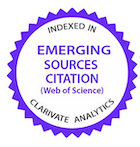Apreensão de produtos de origem animal ilegais em bagagem de voos internacionais no aeroporto de São Paulo - Guarulhos (GRU / SBGR)
DOI:
https://doi.org/10.1590/1809-6891v19e-39744Resumo
O transporte aéreo é um dos meios mais importantes de introdução ilegal de produtos de origem animal importados em um país e estudos têm demonstrado que esses itens representam um risco para a disseminação de doenças. O Aeroporto Internacional de São Paulo - Guarulhos (GRU / SBGR) é o principal aeroporto internacional no Brasil em termos de movimento de pessoas e tem o maior número de produtos de origem animal apreendidos. O objetivo do presente trabalho é realizar análise descritiva da dinâmica de apreensão de produtos de origem animal importados ilegalmente em bagagens de passageiros de voos internacionais no Aeroporto GRU / SBGR. Foram analisados 589 diferentes voos de 43 companhias aéreas, que chegaram de 117 países entre 2006 e 2009. O montante total de itens apreendidos aumentou entre 2006 a 2009 e um voo da França teve o maior número de apreensões, seguido de voos da África do Sul e Alemanha. Países foram agrupados em regiões ou continentes para facilitar a análise. Este agrupamento foi baseado em laços históricos e culturais em vez de relações geográficas. Frutos do mar foi o tipo de produto mais apreendido, seguido por produtos lácteos e carnes processadas e cruas.
Palavras-chave: alfândega; alimentos importados ilegalmente; saúde animal; saúde pública.
Downloads
Downloads
Publicado
Como Citar
Edição
Seção
Licença
Copyright (c) 2018 Ciência Animal Brasileira

Este trabalho está licenciado sob uma licença Creative Commons Attribution 4.0 International License.
Autores que publicam nesta revista concordam com os seguintes termos:
- Autores mantém os direitos autorais e concedem à revista o direito de primeira publicação, com o trabalho simultaneamente licenciado sob a Licença Creative Commons Attribution que permite o compartilhamento do trabalho com reconhecimento da autoria e publicação inicial nesta revista.
- Autores têm autorização para assumir contratos adicionais separadamente, para distribuição não-exclusiva da versão do trabalho publicada nesta revista (ex.: publicar em repositório institucional ou como capítulo de livro), com reconhecimento de autoria e publicação inicial nesta revista.
- Autores têm permissão e são estimulados a publicar e distribuir seu trabalho online (ex.: em repositórios institucionais ou na sua página pessoal) a qualquer ponto antes ou durante o processo editorial, já que isso pode gerar alterações produtivas, bem como aumentar o impacto e a citação do trabalho publicado (Veja O Efeito do Acesso Livre).






























